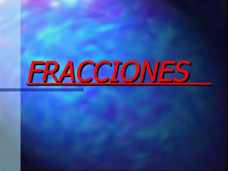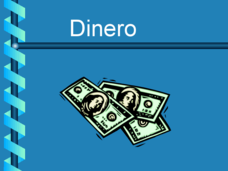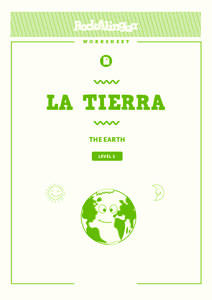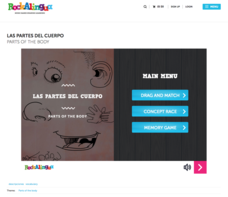Curated OER
Jugar: Preterite Forms
Practice the preterite form of "jugar" with this useful PowerPoint. There are eighteen fill-in-the-blank sentences for students to complete. Tip: If you are showing this slideshow during whole class instruction, have students write their...
Curated OER
Reflexive Verbs
Understanding what reflexive verbs are in English will help your class understand them better in Spanish. Use this PowerPoint as an introduction to your "Verbos Reflexivos" lesson. It outlines reflexive verbs in English and Spanish,...
Curated OER
al / a la / del / de la / en el / en la
Twenty-three fill-in-the-blank sentences challenge your Spanish young scholars to choose the correct Spanish preposition: al, a la, del, de la, en el, or en la. This is a fabulous PowerPoint to use as an enrichment activity during your...
Curated OER
Ser vs estar
Determining between the Spanish verbs "ser" and "estar" can be confusing. Use this PowerPoint to practice. There are thirty-eight slides with fill-in-the-blank sentences for students to decide whether "ser" or "estar" is used. Tip:...
Curated OER
Que estan haciendo?
Each slide in this PowerPoint shows a drawing of people doing various things. Students must answer the question, "Que estan haciendo?" and respond with what the drawing shows. This is a great presentation to help students practice their...
Curated OER
Fracciones
Are you teaching math at a bilingual school? Use this colorful PowerPoint to aid you in teaching fractions. It uses large graphics and clear text to demonstrate how to identify a fraction. There are seven practice slides, as well as...
Curated OER
Dinero
Add some visuals to your money unit with this fantastic PowerPoint. Teach your Spanish class how to recognize and count American money. There are clear directions, written in Spanish, and great images on each slide. Viewing this...
Curated OER
Simetria
Your Spanish students will see what symmetry looks like on a quadrilateral, triangle, and circle in this presentation. Large, bright shapes are displayed with lines of symmetry, followed by examples that do not show a line of symmetry....
Carolina K-12
The Mini Page: July 14 is Bastille Day
July 14th, 1789 marked the beginning of the French Revolution and the end of French aristocracy. Read all about Bastille Day with a kids' newspaper that also includes articles on American popular culture, the circulatory system, and...
Center for Advanced Research on Language Acquisition (CARLA)
Bringing the Biodiversity of Ecuador to Spanish Immersion Classrooms
Designed for the Spanish Immersion classroom, scholars take a look at biodiversity and Ecuador; all the while, practicing their Spanish with a focus on verbs. In small groups, learners examine photographs of the different climate regions...
Museum of New Zealand Te Papa Tongarewa
Te Reo Maori Activity Book
Introduce young explorers to the language of New Zealand's Maori with an activity book that includes word searches, fill-in-the-blank activities with Maori words, and prompts to illustrate native New Zealand birds.
Talking about Family
Unit Overview: This is a unit plan that focuses on family signs. This unit is planned to take two to three weeks and is geared for high school, grades 9-12. This unit consists of daily lessons and activities that correspond to the...
Rock A Lingua
La Tierra (The Earth)
¡Es importante cuidar la tierra! Encourage beginning Spanish speakers to protect their planet and practice their vocabulary with a series of worksheets. Learners fill in the blanks, match animal vocabulary with pictures, and complete...
Rock A Lingua
Las Partes Del Cuerpo (Parts of the Body)
Now that your Spanish class has learned the parts of the body, have them review each term with three interactive learning games! Once learners choose a vocabulary activity, they work on matching terms and identifying parts of the body...
Rock A Lingua
Las Partes Del Cuerpo (Parts of the Body)
How many body parts can you identify in Spanish? Is pelo the word for hair or finger? Match Spanish vocabulary focused on body parts with a series of word puzzles, true-or-false questions, and a funny comic strip.
Rock A Lingua
EL Juego de las Preguntas (Quiz Yourself!)
Put your Spanish skills to the test with an interactive self-assessment tool. Class members select the correct Spanish translation of an English phrase to score ten points and win the game!
Goodwill Community Foundation, Inc.
Directions and Distances
Describe where you are—and find out where you are going—with a beginning Spanish resource on directions and maps. Spanish learners repeat and practice direction words such as norte, este, and oeste, as well as measurement terms such as...
Goodwill Community Foundation, Inc.
Everyday Spanish
¡Qué guay! An interactive Spanish resources takes beginning learners through some common phrases that are sure to enhance their conversational skills. ¡Buen provecho!
Goodwill Community Foundation, Inc.
Going Out
Let's go out to dinner! Provide early Spanish speakers with a quick reference guide and learning tool for common phrases related to a restaurant outing.
Goodwill Community Foundation, Inc.
Helpful Phrases
Learning Spanish in the classroom is a lot different than using the language in a Spanish-speaking country! Beginning Spanish learners learn how to ask whether someone speaks English, if their conversation partner can repeat him or...
Goodwill Community Foundation, Inc.
Transportation
Are you going on a trip? ¿Cómo estás viajando? Whether Spanish learners are taking el avión, el autobus, or el tren, they'll know how to describe and pronounce their modes of transportation with an interactive Spanish resource.
Goodwill Community Foundation, Inc.
Emergencies and Illnesses
If you need medical help, you need to know how to ask—and fast! Beginning Spanish speakers learn important phrases such as no me siento bien and ¡Necesito un médico! with an interactive learning resource.
Goodwill Community Foundation, Inc.
Saying Goodbye
It's really fun to learn Spanish, but the conversation has to end sometime. An interactive learning resource teaches pupils how to say goodbye in several different ways, including ¡chao! and ¡hasta pronto!
Goodwill Community Foundation, Inc.
Manners and Etiquette
Learning how to speak Spanish is incomplete if you're not speaking politely! Teach class members the basics of Spanish manners, including perdón, lo siento, and salud to reinforce their conversational etiquette.

























